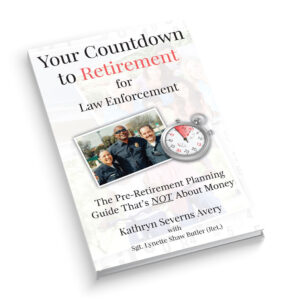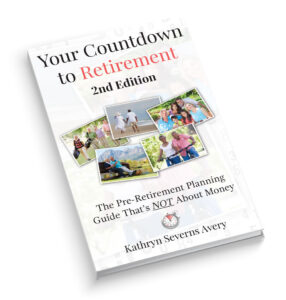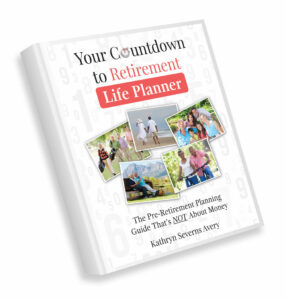It's Not Just About the Money!
What Baby Boomers Don’t Know About Retirement And Why It Might Kill Them
-
Author : Your Countdown to Retirement
Date : March 6, 2019
Category : Health and Wellness, Lifestyle, Redefining Retirement
Comments : 0
Like : 0

By Kathryn Severns Avery
Advertisements for products aimed at retiring baby boomers often use images of smiling men and women engaged in exciting and/or meaningful pursuits. A grandfather unembarrassedly wears a tiara at his granddaughter’s tea party. He sits on an undersized chair, throwing back his head and laughing at her delightful antics. As their river cruise ship lazily passes European architectural triumphs, an attractive gray-haired couple exchanges meaningful glances while nuzzling noses over a glass of what we presume is very good wine.
These ads lead us to believe that life for baby boomer retirees should mimic the lifestyles depicted. After all, retirement is a fun-filled time spent pursuing enjoyable leisure activities, traveling to exotic destinations, and enjoying our friends, children, and grandchildren, right?
What baby boomers don’t know is that, for many, retirement is a very difficult phase of life marked by depression, isolation, substance abuse, and premature death. Why? Lack of awareness of and preparation for the extreme emotions and disease-inducing stress that ending a lifetime of work can evoke.
Statistics show that many baby boomers, especially retired men, would rather suffer in silence than risk feeling embarrassment and the shame of admitting they are struggling. According to the 2012 “Study of Substance Abuse Among Older Adults” by the Substance Abuse and Mental Health Services Administration, alcohol and drug abuse and their addiction rates are dramatically rising. So, too, are rates of moderate to severe depression and suicide. The effects of stress among “The Sandwich Generation” – baby boomers planning their own retirement while financially and/or emotionally assisting both their children and elderly parents – are taking a huge toll both emotionally and physically.
Baby boomers are the generation that did inhale and engaged in widespread recreational drug use in their youth. An uptick in drug use is occurring in this phase of life because our generation does not consider it taboo. Turning to drugs, alcohol, compulsive spending, overeating, and other unhealthy distractions as ways to assuage the uncomfortable emotions and boredom that can come with retirement is not a foreign concept. But youth is no longer on our side and we find ourselves both more vulnerable and susceptible to unhealthy stress management techniques.
The phrase “It’s five o’clock somewhere,” is popular for justifying imbibing before the traditional cocktail hour. But what happens when retirees use that phrase to rationalize drinking at noon, seven day a week?
Breaking through the denial most baby boomers have around these very difficult issues is not easy. Many will continue to stick their heads in the sand until easier resolutions to problems are no longer an option. In the meantime, the effects of these unresolved issues will become more
and more visible in the form of increased physical and mental illness and rising mortality rates among the aging baby boomer population.
Facing potential problems and developing viable solutions needs to happen now, long before the effects of the Age Wave crash down upon society. Most individuals, municipalities, as well as state and federal governments are unaware of and unprepared for the scope of the coming crises in housing, healthcare, and homelessness. If these issues aren’t top of mind now so there is time to develop and implement solutions, the future of aging baby boomers may be very bleak indeed.
What is needed:
Create an open dialogue among baby boomers, their friends, families, and employers to discuss and prepare for the emotional turmoil that often happens during the transition from working to not working.
Awareness by health care providers of the propensity of baby boomers to self-medicate during this transition period and to intervene on their patient’s behalf when needed.
Development of substance abuse treatment and prevention programs tailored to the needs of an aging and elderly population.
Elevate awareness of Age Wave related problems and solutions in the media, at municipal, state, and federal levels, in businesses, and at places of worship. Use this awareness to foster the creation of programs for struggling baby boomers.
If you or someone you love is about to retire, or has retired, and is ready to start exploring, planning, and preparing for the next stage of life, contact us! Or, visit us at our What’s Next for Boomers Life Planning Center.
Subscribe to YCTR!
Latest Blog Posts





